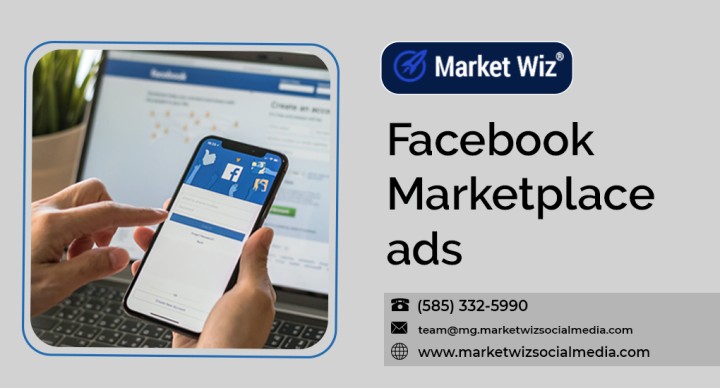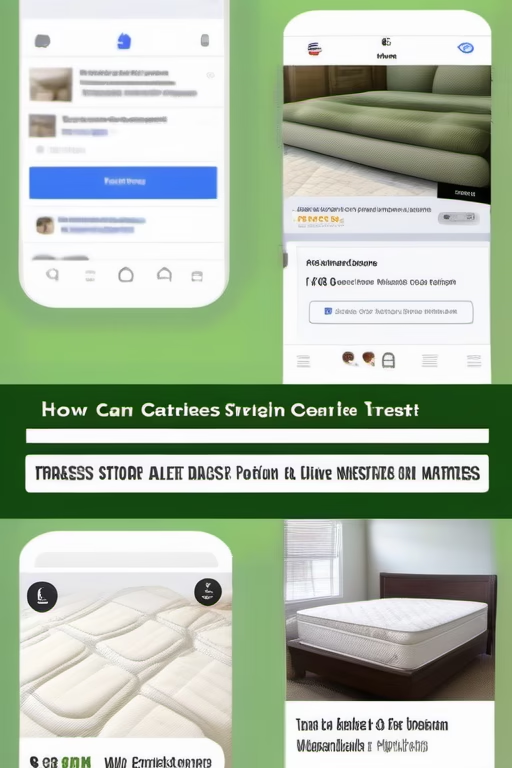Why You’re Not Ranking in Your City & How to Fix It
Local SEO Rescue Guide by Market Wiz AI
Table of Contents
- Introduction: Why You’re Not Ranking in Your City & How to Fix It
- 1. Understanding Local Ranking Factors
- 1.1 Relevance & Keywords
- 1.2 Proximity Signals
- 1.3 Prominence & Authority
- 1.4 Behavioral & Engagement Signals
- 2. Common Reasons You’re Not Ranking
- 2.1 Incomplete Google Business Profile
- 2.2 NAP Inconsistency
- 2.3 Sparse City-Specific Content
- 2.4 Weak Citation Network
- 2.5 Poor On‑Page Optimization
- 2.6 Lack of Reviews
- 2.7 Low Engagement Signals
- 2.8 Technical SEO Barriers
- 3. Step‑by‑Step Fixes
- 3.1 Claim & Optimize Your GMB
- 3.2 Audit & Standardize Citations
- 3.3 Craft City‑Targeted Content
- 3.4 Build Quality Local Backlinks
- 3.5 Encourage & Manage Reviews
- 3.6 Boost Engagement with CTAs
- 3.7 Perform Technical SEO Audit
- 4. Advanced Strategies
- 4.1 Local Schema Markup
- 4.2 Voice Search Optimization
- 4.3 Geo‑Fencing & Local Ads
- 5. Tracking Your Progress
- 5.1 GMB Insights
- 5.2 Rank Tracking Tools
- 5.3 Google Analytics Local Reports
- 6. Conclusion & Next Steps
- 25 FAQs
- 25 Extra Keywords
Introduction: Why You’re Not Ranking in Your City & How to Fix It
Why You’re Not Ranking in Your City & How to Fix It is the exact question many local businesses ask when they fail to appear in their own backyard. This comprehensive guide uncovers the essential ranking factors, common pitfalls, and proven remedies to reclaim your visibility in local search and map results.
1. Understanding Local Ranking Factors
1.1 Relevance & Keywords
Matching your business offerings to search queries—like “emergency plumber [City]”—ensures Google sees you as a relevant solution.
1.2 Proximity Signals
Google favors businesses nearest to the searcher’s location. An accurate address and map pin are critical.
1.3 Prominence & Authority
Backlinks, local citations, and media mentions boost your prominence in local rankings.
1.4 Behavioral & Engagement Signals
Actions like clicks, calls, direction requests, and profile views tell Google your listing is engaging.
2. Common Reasons You’re Not Ranking
2.1 Incomplete Google Business Profile
A partially filled profile limits your visibility and trustworthiness in Google’s eyes.
2.2 NAP Inconsistency
Mismatched Name, Address, or Phone across listings confuses both users and search engines.
2.3 Sparse City-Specific Content
Without pages or posts targeting your city, Google has no local context for your services.
2.4 Weak Citation Network
Few or low‑quality directory listings reduce your authority signal for local search.
2.5 Poor On‑Page Optimization
Missing local keywords in title tags, headings, and meta descriptions undercuts relevance.
2.6 Lack of Reviews
Few reviews or slow response to feedback lowers trust and map-pack ranking.
2.7 Low Engagement Signals
No calls, clicks, or direction requests signal a dormant listing.
2.8 Technical SEO Barriers
Issues like slow mobile load times, crawl errors, and missing schema markup hamper indexing and display.
3. Step‑by‑Step Fixes
3.1 Claim & Optimize Your GMB
Verify your listing, fill out all fields, choose precise categories, and enable messaging and booking features.
3.2 Audit & Standardize Citations
Use free tools or manual checks to ensure NAP consistency across top directories and niche sites.
3.3 Craft City‑Targeted Content
Create a dedicated landing page or blog posts about your city—highlight landmarks, neighborhoods, and local case studies.
3.4 Build Quality Local Backlinks
Partner with community organizations, sponsor local events, and earn mentions on reputable local websites.
3.5 Encourage & Manage Reviews
Ask happy customers for Google reviews, respond promptly to all feedback, and showcase top reviews in your posts.
3.6 Boost Engagement with CTAs
Add “Call Now,” “Get Directions,” and “Book Online” prompts in your GMB description and posts.
3.7 Perform Technical SEO Audit
Run free scanners to fix crawl errors, improve mobile speed, and add LocalBusiness schema to your site.
4. Advanced Strategies
4.1 Local Schema Markup
Implement schema for your address, hours, reviews, and services to earn rich snippets in search results.
4.2 Voice Search Optimization
Optimize content for conversational queries—“Where can I find a cafe near me open now?”—to capture voice-driven leads.
4.3 Geo‑Fencing & Local Ads
Use low‑cost geo‑fencing ads to target mobile users within a specific radius of your business.
5. Tracking Your Progress
5.1 GMB Insights
Monitor search queries, map views, calls, and direction requests in your Google Business dashboard.
5.2 Rank Tracking Tools
Use free or trial versions of BrightLocal, Ubersuggest, or SERPWatcher to see your local keyword positions.
5.3 Google Analytics Local Reports
Set up location filters and goal tracking to measure traffic and conversions from your city pages.
6. Conclusion & Next Steps
Why You’re Not Ranking in Your City & How to Fix It boils down to a few foundational elements: a fully optimized GMB, consistent citations, city‑focused content, and strong engagement signals. Implement these fixes, track your metrics, and iterate monthly to climb the local rankings and capture more city‑based customers.
25 Frequently Asked Questions
1. Why am I not ranking in my city?
Common reasons include an incomplete Google Business Profile, inconsistent citations, and lack of city-specific content.
2. How do I check my local ranking?
Use tools like BrightLocal, Ubersuggest, or incognito search to see where you rank for target keywords in your city.
3. What is the map pack?
The map pack is the group of local business listings that appears at the top of Google’s search results with a map.
4. How important is my Google Business Profile?
It’s crucial—GMB directly influences your visibility in local and map search results.
5. What is NAP consistency?
Ensuring your Name, Address, and Phone number match exactly across all online listings and your website.
6. How do citations affect local SEO?
Citations act as validation of your business’s legitimacy and location, boosting prominence signals.
7. How many reviews do I need?
Aim for at least 20–30 high-quality Google reviews to establish trust and improve rankings.
8. How often should I post updates in GMB?
Weekly posts keep your profile active and signal engagement to Google.
9. Should I create city-specific pages?
Yes—dedicated pages for each service area help Google understand and rank you for those locations.
10. How do I generate more reviews?
Ask satisfied customers via SMS or email, and provide direct review links to make the process easy.
11. Can backlinks help local rankings?
Yes—local backlinks from reputable sites signal authority and relevance to Google.
12. What technical issues impact local SEO?
Slow mobile load times, crawl errors, missing structured data, and broken links can all hurt your ranking.
13. How do I optimize for voice search?
Use conversational keywords and FAQ sections that mirror how people ask questions verbally.
14. Are geo‑fencing ads free?
Geo‑fencing typically incurs ad spend, but targeting a small radius can be cost‑effective for quick local boosts.
15. What engagement metrics matter?
Call clicks, direction requests, profile views, and post engagements indicate a healthy GMB profile.
16. How long to see results?
You may notice improvements in 4–6 weeks, with more substantial gains over 3–6 months of consistent work.
17. Should I use schema markup?
Yes—LocalBusiness schema enhances your listing’s chance of appearing in rich snippets.
18. Can social media impact local SEO?
Indirectly—social signals drive traffic and engagement, which can translate into citations and backlinks.
19. How do I audit citations for free?
Perform manual checks on top directories or use free versions of citation audit tools to spot inconsistencies.
20. What free tools track local rank?
Ubersuggest and SERPWatcher offer limited free tracking; incognito searches can supplement these insights.
21. How do I handle negative reviews?
Respond professionally, offer solutions, and encourage satisfied customers to share positive feedback.
22. Can I manage multiple locations?
Create separate GMB listings, pages, and citation entries for each location with accurate details.
23. What is prominence in Google Maps?
Prominence refers to how well-known and authoritative a business is, based on backlinks, citations, and media mentions.
24. Is mobile optimization required?
Absolutely—most local searches occur on mobile; ensure quick load times and responsive design.
25. Where can I learn more?
Visit Market Wiz AI’s blog and resource center for deeper tutorials, case studies, and video guides.
25 Extra Keywords
- Why You’re Not Ranking in Your City & How to Fix It
- local SEO city ranking
- map pack SEO
- GMB optimization
- citation audit
- local backlink building
- city-specific content
- voice search local SEO
- LocalBusiness schema
- geo-fencing marketing
- call to action local
- click-to-call optimization
- direction request boost
- mobile local search
- local competitor analysis
- hyperlocal targeting
- review management
- engagement signals SEO
- technical local SEO audit
- rank tracking tools
- Google Analytics local
- BrightLocal free
- Ubersuggest local audit
- schema markup localbusiness
- SEO for multi-location

















